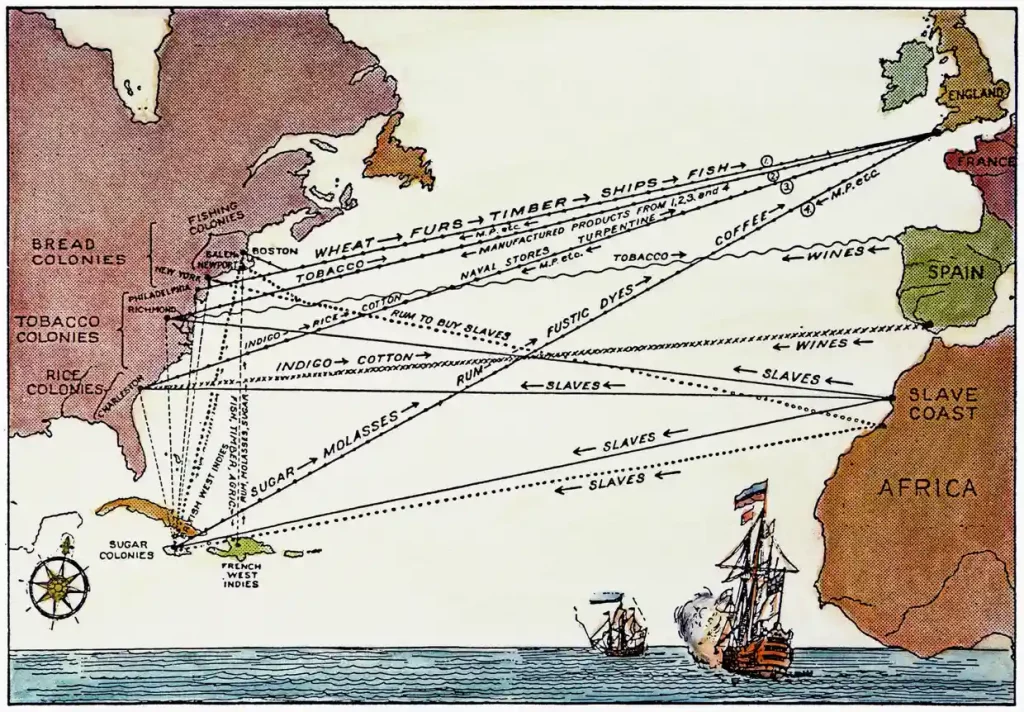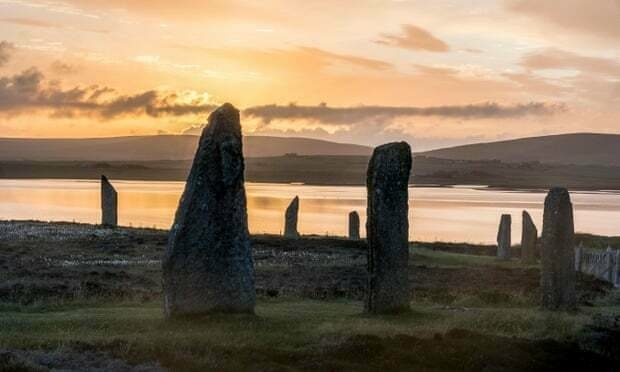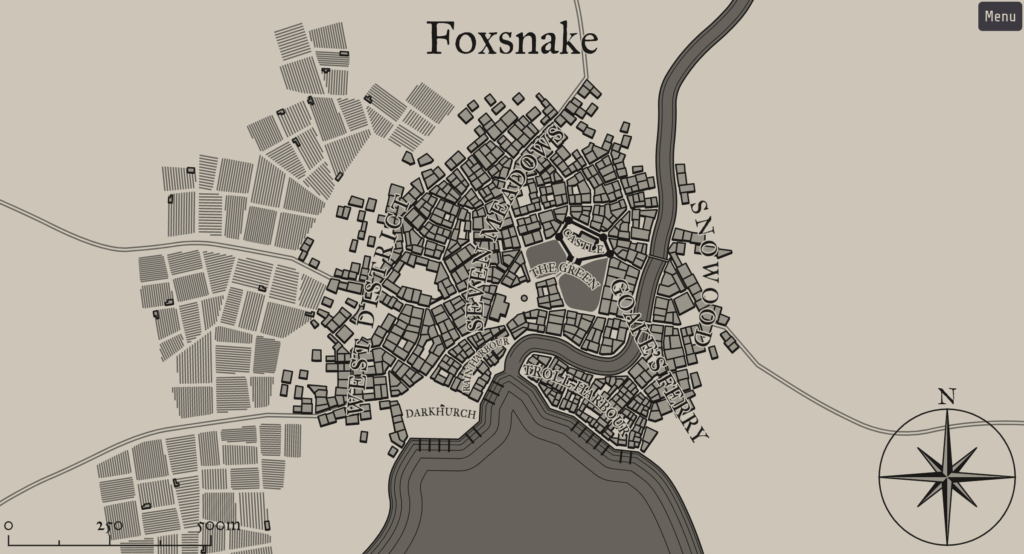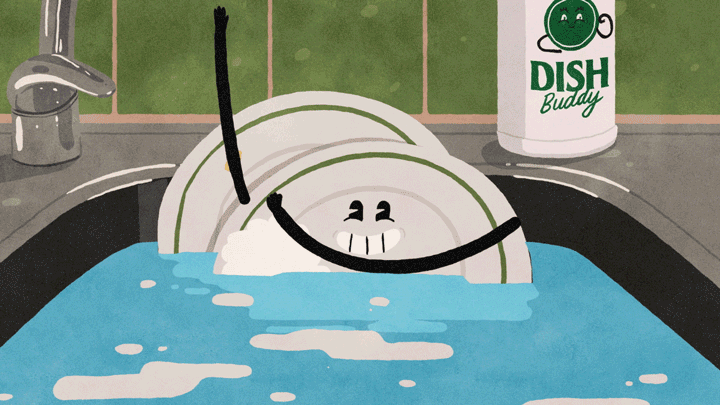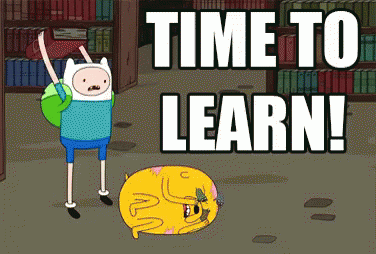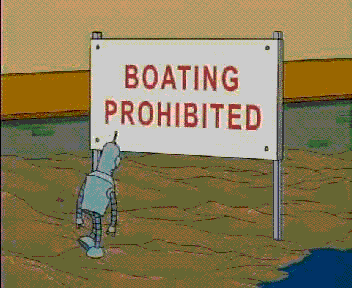- We Have No Reason to Believe 5G Is Safe (Scientific American) — "The latest cellular technology, 5G, will employ millimeter waves for the first time in addition to microwaves that have been in use for older cellular technologies, 2G through 4G. Given limited reach, 5G will require cell antennas every 100 to 200 meters, exposing many people to millimeter wave radiation... [which are] absorbed within a few millimeters of human skin and in the surface layers of the cornea. Short-term exposure can have adverse physiological effects in the peripheral nervous system, the immune system and the cardiovascular system."
- Situated degree pathways (The Ed Techie) — "[T]he Trukese navigator “begins with an objective rather than a plan. He sets off toward the objective and responds to conditions as they arise in an ad hoc fashion. He utilizes information provided by the wind, the waves, the tide and current, the fauna, the stars, the clouds, the sound of the water on the side of the boat, and he steers accordingly.” This is in contrast to the European navigator who plots a course “and he carries out his voyage by relating his every move to that plan. His effort throughout his voyage is directed to remaining ‘on course’."
- on rms / necessary but not sufficient (p1k3) — "To the extent that free software was about wanting the freedom to hack and freely exchange the fruits of your hacking, this hasn’t gone so badly. It could be better, but I remember the 1990s pretty well and I can tell you that much of the stuff trivially at my disposal now would have blown my tiny mind back then. Sometimes I kind of snap to awareness in the middle of installing some package or including some library in a software project and this rush of gratitude comes over me."
- Screen time is good for you—maybe (MIT Technology Review) — "Przybylski admitted there are some drawbacks to his team’s study: demographic effects, like socioeconomics, are tied to psychological well-being, and he said his team is working to differentiate those effects—along with the self-selection bias introduced when kids and their caregivers report their own screen use. He also said he was working to figure out whether a certain type of screen use was more beneficial than others."
- This Map Lets You Plug in Your Address to See How It’s Changed Over the Past 750 Million Years (Smithsonian Magazine) — "Users can input a specific address or more generalized region, such as a state or country, and then choose a date ranging from zero to 750 million years ago. Currently, the map offers 26 timeline options, traveling back from the present to the Cryogenian Period at intervals of 15 to 150 million years."
- Understanding extinction — humanity has destroyed half the life on Earth (CBC) — "One of the most significant ways we've reduced the biomass on the planet is by altering the kind of life our planet supports. One huge decrease and shift was due to the deforestation that's occurred with our increasing reliance on agriculture. Forests represent more living material than fields of wheat or soybeans."
- Honks vs. Quacks: A Long Chat With the Developers of 'Untitled Goose Game' (Vice) — "[L]ike all creative work, this game was made through a series of political decisions. Even if this doesn’t explicitly manifest in the text of the game, there are a bunch of ambient traces of our politics evident throughout it: this is why there are no cops in the game, and why there’s no crown on the postbox."
- What is the Zeroth World, and how can we use it? (Bryan Alexander) — "[T]he idea of a zeroth world is also a critique. The first world idea is inherently self-congratulatory. In response, zeroth sets the first in some shade, causing us to see its flaws and limitations. Like postmodern to modern, or Internet2 to the rest of the internet, it’s a way of helping us move past the status quo."
- It’s not the claim, it’s the frame (Hapgood) — "[A] news-reading strategy where one has to check every fact of a source because the source itself cannot be trusted is neither efficient nor effective. Disinformation is not usually distributed as an entire page of lies.... Even where people fabricate issues, they usually place the lies in a bed of truth."
- Study shows some political beliefs are just historical accidents (Ars Technica) — "Obviously, these experiments aren’t exactly like the real world, where political leaders can try to steer their parties. Still, it’s another way to show that some political beliefs aren’t inviolable principles—some are likely just the result of a historical accident reinforced by a potent form of tribal peer pressure. And in the early days of an issue, people are particularly susceptible to tribal cues as they form an opinion."
- Please, My Digital Archive. It’s Very Sick. (Lapham's Quarterly) — "An archivist’s dream is immaculate preservation, documentation, accessibility, the chance for our shared history to speak to us once more in the present. But if the preservation of digital documents remains an unsolvable puzzle, ornery in ways that print materials often aren’t, what good will our archiving do should it become impossible to inhabit the world we attempt to preserve?"
- So You’re 35 and All Your Friends Have Already Shed Their Human Skins (McSweeney's) — "It’s a myth that once you hit 40 you can’t slowly and agonizingly mutate from a human being into a hideous, infernal arachnid whose gluttonous shrieks are hymns to the mad vampire-goddess Maggorthulax. You have time. There’s no biological clock ticking. The parasitic worms inside you exist outside of our space-time continuum."
- Investing in Your Ordinary Powers (Breaking Smart) — "The industrial world is set up to both encourage and coerce you to discover, as early as possible, what makes you special, double down on it, and build a distinguishable identity around it. Your specialness-based identity is in some ways your Industrial True Name. It is how the world picks you out from the crowd."
- Browser Fingerprinting: An Introduction and the Challenges Ahead (The Tor Project) — "This technique is so rooted in mechanisms that exist since the beginning of the web that it is very complex to get rid of it. It is one thing to remove differences between users as much as possible. It is a completely different one to remove device-specific information altogether."
- What is a Blockchain Phone? The HTC Exodus explained (giffgaff) — "HTC believes that in the future, your phone could hold your passport, driving license, wallet, and other important documents. It will only be unlockable by you which makes it more secure than paper documents."
- Debate rages in Austria over enshrining use of cash in the constitution (EURACTIV) — "Academic and author Erich Kirchler, a specialist in economic psychology, says in Austria and Germany, citizens are aware of the dangers of an overmighty state from their World War II experience."
- Cory Doctorow: DRM Broke Its Promise (Locus magazine) — "We gave up on owning things – property now being the exclusive purview of transhuman immortal colony organisms called corporations – and we were promised flexibility and bargains. We got price-gouging and brittleness."
- Five Books That Changed Me In One Summer (Warren Ellis) — "I must have been around 14. Rayleigh Library and the Oxfam shop a few doors down the high street from it, which someone was clearly using to pay things forward and warp younger minds."
Literally shitposting
I saw this mentioned in passing and thought it was unusual enough to share here. There's a metaphor in there somewhere...

In July 1184 Henry VI, King of Germany (later Holy Roman Emperor), held court at a Hoftag in Erfurt. On the morning of 26 July, the combined weight of the assembled nobles caused the wooden second story floor of the assembly building to collapse and most of them fell through into the latrine cesspit below the ground floor, where about 60 of them drowned in liquid excrement. This event is called Erfurter Latrinensturz (lit. 'Erfurt latrine fall') in several German sources.
Are we in a post-album era for music?
One of the downsides of getting older is that things you took to be sacred all of a sudden seem to be obsolete. For example, music albums, which have always been a part of my life, seem to now be referred to in the past tense?
There’s a whole Wikipedia article on the ‘album era’ so… it must be true.
The album era was a period in English-language popular music from the mid-1960s to the mid-2000s in which the album was the dominant form of recorded music expression and consumption. It was primarily driven by three successive music recording formats: the 33⅓ rpm long-playing record (LP), the audiocassette, and the compact disc. Rock musicians from the US and the UK were often at the forefront of the era, which is sometimes called the album-rock era in reference to their sphere of influence and activity. The term "album era" is also used to refer to the marketing and aesthetic period surrounding a recording artist's album release.Source: Album era | Wikipedia
Historic aerial photos of England
It's annoying they can't be downloaded, but fun to see historic aerial photos of my home town!
You can explore over 400,000 digitised photos taken from our aerial photo collections of over 6 million photographs preserved in the Historic England Archive.Source: Aerial Photo Explorer – Over 400,000 aerial photos in Historic England's digitised collections | Historic England
British monarchs helped fund, and profited from, the slave trade
The monarchy wasn’t a force for good during the age of colonialism/empire, nor is it a force for good now.
In 1660, the Royal African Company was established by the Duke of York, who later became James II, with involvement from his brother, Charles II. The Royal African Company was prolific within the slave trade; according to the Slave Voyages website, between 1672 and 1731 the Royal African Company transported more than 187,000 slaves from Africa to English colonies in North, Central and South America. Many of the enslaved Africans transported by the Royal African Company were branded “DY”, standing for Duke of York.Source: What are the British monarchy’s historical links to slavery? | The GuardianBetween 1690 and 1807, an estimated 6 million enslaved Africans were transported from west Africa to the Americas on British or Anglo-American ships. The slave trade was protected by the royal family and parliament.
San Francisco is built on the carcasses of old ships
Very cool. There’s a metaphor in there somewhere.
When the gold rush began in 1848, thousands of people sailed into California, hoping to strike it rich. The ships that sailed there were often just enough to get the crew there. Many would never sail again.Source: Why is San Francisco's Foundation is Built on Old Ships from the Mid-1800s? | Interesting EngineeringA large portion of the ships that landed in San Francisco Bay were simply left to rot as the crews they brought got caught up in gold fever. At the height of the gold rush, there were 500 to one thousand ships moored in the harbor, clogging up traffic and making the waters almost un-navigable.
The city needed land, and since most of it had already been built on, politicians devised a brilliant solution: start building on the water. The city started selling plots of bay water on the condition that the new owner would turn it into new land. So, ships were intentionally run aground and built into hotels and bars – they became part of the city.
Stone Age culture in the Orkney islands
When I was eight years old, we took a family trip to the Orkney islands off the north coast of Scotland. I don’t know why we went there particularly, but it was amazing. I almost don’t want to go back because it might break the spell the place has cast over my life.
While were were there, with no kind of tourist fanfare I was allowed to handle skulls that were thousands of years old, crawl into tombs, and generally really experience history. I doubt they have such a cavalier approach to artefacts these days…
If you happen to imagine that there’s not much left to discover of Britain’s stone age, or that its relics consist of hard-to-love postholes and scraps of bones, then you need to find your way to Orkney, that scatter of islands off Scotland’s north-east coast. On the archipelago’s Mainland, out towards the windswept west coast with its wave-battered cliffs, you will come to the Ness of Brodgar, an isthmus separating a pair of sparkling lochs, one of saltwater and one of freshwater. Just before the way narrows you’ll see the Stones of Stenness rising up before you. This ancient stone circle’s monoliths were once more numerous, but they remain elegant and imposing. Like a gateway into a liminal world of theatricality and magic, they lead the eye to another, even larger neolithic monument beyond the isthmus, elevated in the landscape as if on a stage. This is the Ring of Brodgar, its sharply individuated stones like giant dancers arrested mid-step – as local legend, indeed, has it.Source: ‘Every year it astounds us’: the Orkney dig uncovering Britain’s stone age culture | The Guardian
Medieval Fantasy City Generator
The history geek in me loves this so much. And the educator interested in digital literacies loves the fact that you have to manipulate the URL to generate different types of village / town / city!
Source: Medieval Fantasy City Generator
BBC Archives and the changing of history
On the one hand, I’m glad that the BBC is ensuring that some of its archive material is a bit more in keeping with our (hopefully more enlightened) sensibilities.
However, on the other hand, why do this in secret?
“The sinister fact about literary censorship in England,” Orwell wrote back in 1945, “is that it is largely voluntary.” And so, indeed, it is. Over the weekend, the Daily Telegraph reported that “an anonymous Radio 4 Extra listener” had “discovered the BBC had been quietly editing repeats of shows over the past few years to be more in keeping with social mores.” To which the BBC said . . . well, yeah. In a statement addressing the charge, the institution confirmed that “on occasion we edit some episodes so they’re suitable for broadcast today, including removing racially offensive language and stereotypes from decades ago, as the vast majority of our audience would expect.” Thus, in the absence of law or regulation, has the British establishment begun to excise material it finds inappropriate by today’s lights.Source: BBC Censors Its Own Archives | National Review[…]
This raises a host of important questions — chief among which is: Why, if “the vast majority” of the BBC’s audience expects the organization to render its archives more “suitable,” has it been doing so in secret? Again: In the Internet age, changes made to source material tend to be iterative rather than additive. When the New York Times updates a story in its newspaper, one can plausibly obtain both copies. By contrast, when the New York Times updates a story on its website, the original page disappears. By its own admission, the BBC has been deleting entire sketches from comedy series that are 50, 60, or 70 years old, many of which can be heard only with the BBC’s permission. Are we simply to assume that the public supports this development? And, if so, are we permitted to wonder why the BBC was not open about it?
Vaccine Hesitancy as part of a Plague Anthology
I’m not sure who’s behind this website, but it looks good. I appreciated the historical context behind vaccine hesitancy in cultures other than my own provided in the most recent post.
Anti-vaxxers adjacent to conspiracy theorists are nuts, but there’s definitely a communications angle to ensuring the effective roll-out of life-saving vaccines.
In Egypt, around 1800, there are reports of 60 000 deaths each year. The Ottoman ruler, Muhammad Ali Pasha, began in 1819 to institute a plan for general vaccinations and the logical people to carry this out were the barber-surgeons, known and trusted by the locals. While the Bedouin had long been enthusiastic about protecting their children in this way, the fellahin (peasantry) was reluctant, largely because they did not trust the government and thought it was a way of “marking” their children for conscription. Religious objections and concerns about mixing Muslim and Christian blood also played their part, and attempts to bribe the vaccinators were not uncommon.Source: Vaccine Hesitancy – Egypt 1866 | Plague AnthologyAfter the serious epidemic of 1836, official efforts intensified, with barber-vaccinators being trained and records kept. Gradually, the message got through and by 1850, the decline in child mortality was affecting the population statistics. The following anecdote, describes a perhaps surprising pocket of vaccine hesitancy.
The farmer uses his plough as his form of work
Someone mentioned this in passing and I looked it up and thought it was neat.
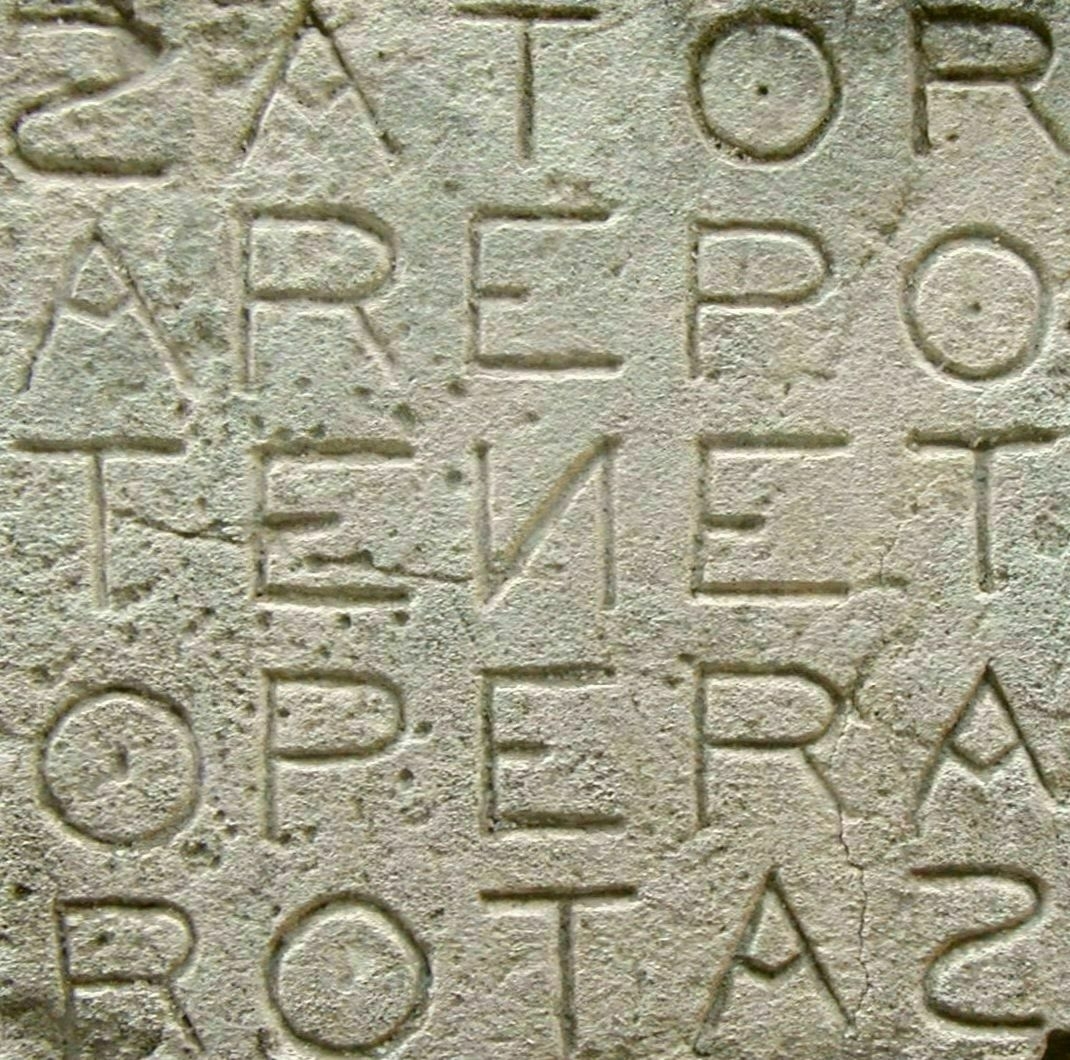
The Sator Square (or Rotas Square) is a two-dimensional word square containing a five-word Latin palindrome. It features in early Christian as well as in magical contexts. The earliest example of the square dates from the ruins of Pompeii, which some scholars attribute to pre-Christian origins, such as Jewish or Mithraic.Source: Sator Square | Wikipedia
Unless one is a genius, it is best to aim at being intelligible

👯♀️ Secrets of the VIP Party: Why the 1% Love ‘Ritualised Waste’ — "Post-pandemic, in a broader sense, you glimpsed an immediate reckoning and disgust with ostentatious displays of wealth in the context of COVID-19. We saw some instances where people would make statements like ‘we’re all in this together’, while broadcasting from their luxury yacht or private island, followed by a backlash. I think they’ve quickly learned not to do that since…"
This is an incredible read: an interview with a former model turned sociology professor.
💳 Germany To Let Citizens Store ID Cards On Smartphone — "The Interior Ministry said Wednesday that from this fall, citizens will be able to use the electronic ID stored in their smartphones together with a PIN number to prove they are who they claim to be when communicating with authorities or private businesses."
It's Germany, so I'm sure they'll do this sensibly, but it's incredible to think how quickly smartphones have become an essential part of our everyday life.
🏛️ 'A very dangerous epoch': historians try to make sense of Covid — "It is not just the Covid pandemic that can make these feel like unusually significant times. Populism, Trump’s rise and (perhaps) fall, Brexit, the Black Lives Matter and #MeToo protests, mass movement of refugees, the increased might of both China and India and many other issues have contributed to a sense of humanity having reached a historic moment, all while the climate crisis rages with ever more urgency."
People always think they're living through unprecedented times. But in our case, we probably are.
🚸 Why there's no such thing as lost learning — "The fact is that we – as a community of politicians, teachers and education experts – decide what any child must know, understand or be able to do at each age, not some natural law of learning. Why should a child know the structure of a cell membrane by the age of 16? I couldn’t know that information at 16 because it had not yet been fully discovered and described. But I learned it at a later stage."
This is a useful post to point people towards, as the author does a great job of pointing out the ridiculousness of putting an arbitrary body of knowledge before the well-being of young people.
👑 Should Elizabeth II be Elizabeth the Last? At least allow Britain a debate — "But none of [these revelations] reflect the real damage the monarchy inflicts on us. It’s not their money nor their abuse of power, but their very existence that ambushes and infantilises the public imagination, making us their subjects in mind and spirit."
My views on privilege hardly need rehearsing here, but suffice to say that one of the main problems with our tiny island is the delusions of grandeur we have through outdated institutions such as the monarchy.
Quotation-as-title by Anthony Hope. Image by Tyler Nix.
Continuous eloquence is tedious

🏭 Ukraine plans huge cryptocurrency mining data centers next to nuclear power plants — "Ukraine's Energoatom followed up [the May 2020] deal with another partnership in October. The state enterprise announced an MoU with Dutch mining company Bitfury to operate multiple data centers near its four nuclear power plants, with a total mining consumption of 2GW."
It's already impossible to buy graphics cards, due to their GPUs being perfect for crypto mining. That fact doesn't seem like it's going to be resolved anytime soon.
😔 The unbearable banality of Jeff Bezos — "To put it in Freudian terms, we are talking about the triumph of the consumerist id over the ethical superego. Bezos is a kind of managerial Mephistopheles for our time, who will guarantee you a life of worldly customer ecstasy as long as you avert your eyes from the iniquities being carried out in your name."
I've started buying less stuff from Amazon; even just removing the app from my phone has made them treat me as just another online shop. I also switched a few years ago from a Kindle to a ePub-based e-reader.
📱 The great unbundling — "Covid brought shock and a lot of broken habits to tech, but mostly, it accelerates everything that was already changing. 20 trillion dollars of retail, brands, TV and advertising is being overturned, and software is remaking everything from cars to pharma. Meanwhile, China has more smartphone users than Europe and the USA combined, and India is close behind - technology and innovation will be much more widely spread. For that and lots of other reasons, tech is becoming a regulated industry, but if we step over the slogans, what does that actually mean? Tech is entering its second 50 years."
This is a really interesting presentation (and slide deck). It's been interesting watching Evans build this iteratively over the last few weeks, as he's been sharing his progress on Twitter.
🗯️ The Coup We Are Not Talking About — "In an information civilization, societies are defined by questions of knowledge — how it is distributed, the authority that governs its distribution and the power that protects that authority. Who knows? Who decides who knows? Who decides who decides who knows? Surveillance capitalists now hold the answers to each question, though we never elected them to govern. This is the essence of the epistemic coup. They claim the authority to decide who knows by asserting ownership rights over our personal information and defend that authority with the power to control critical information systems and infrastructures."
Zuboff is an interesting character, and her book on surveillance capitalism is a classic. This might article be a little overblown, but it's still an important subject for discussion.
☀️ Who Built the Egyptian Pyramids? Not Slaves — "So why do so many people think the Egyptian pyramids were built by slaves? The Greek historian Herodotus seems to have been the first to suggest that was the case. Herodotus has sometimes been called the “father of history.” Other times he's been dubbed the “father of lies.” He claimed to have toured Egypt and wrote that the pyramids were built by slaves. But Herodotus actually lived thousands of years after the fact."
It's always good to challenge our assumptions, and, perhaps more importantly, analyse why we came to hold them in the first place.
Quotation-as-title by Blaise Pascal. Image by Victor Forgacs.
To pursue the unattainable is insanity, yet the thoughtless can never refrain from doing so

💬 The Surprising Power of Simply Asking Coworkers How They’re Doing
🤔 Facebook Maybe Not Singlehandedly Undermining Democracy With Political Content, Says Facebook
👂 Unnervingly good entry in the "what languages sound like to non-speakers" genre
⚔️ Could a Peasant defeat a Knight in Battle?
Quotation-as-title from Marcus Aurelius. Image from top-linked post.
Everything intercepts us from ourselves

🤝 Medieval English people used to pay their rent in eels
🤺 The Mad, Mad World of Niche Sports Among Ivy League–Obsessed Parents
📜 Archaeologists unearth 'huge number' of sealed Egyptian sarcophagi
🌉 3D model of how the Charles bridge in Prague was constructed
💪 Every Man Should Be Able to Save His Own Life: 5 Fitness Benchmarks a Man Must Master
Quotation by Ralph Waldo Emerson. Image from top-linked post.
Perceptions of the past

The History teacher in me likes this simple photo quiz site that shows how your perception of the past can easily be manipulated by how photographs are presented.
Friday facilitations
This week, je presente...
Image of hugelkultur bed via Sid
Friday feudalism
Check out these things I discovered this week, and wanted to pass along:

